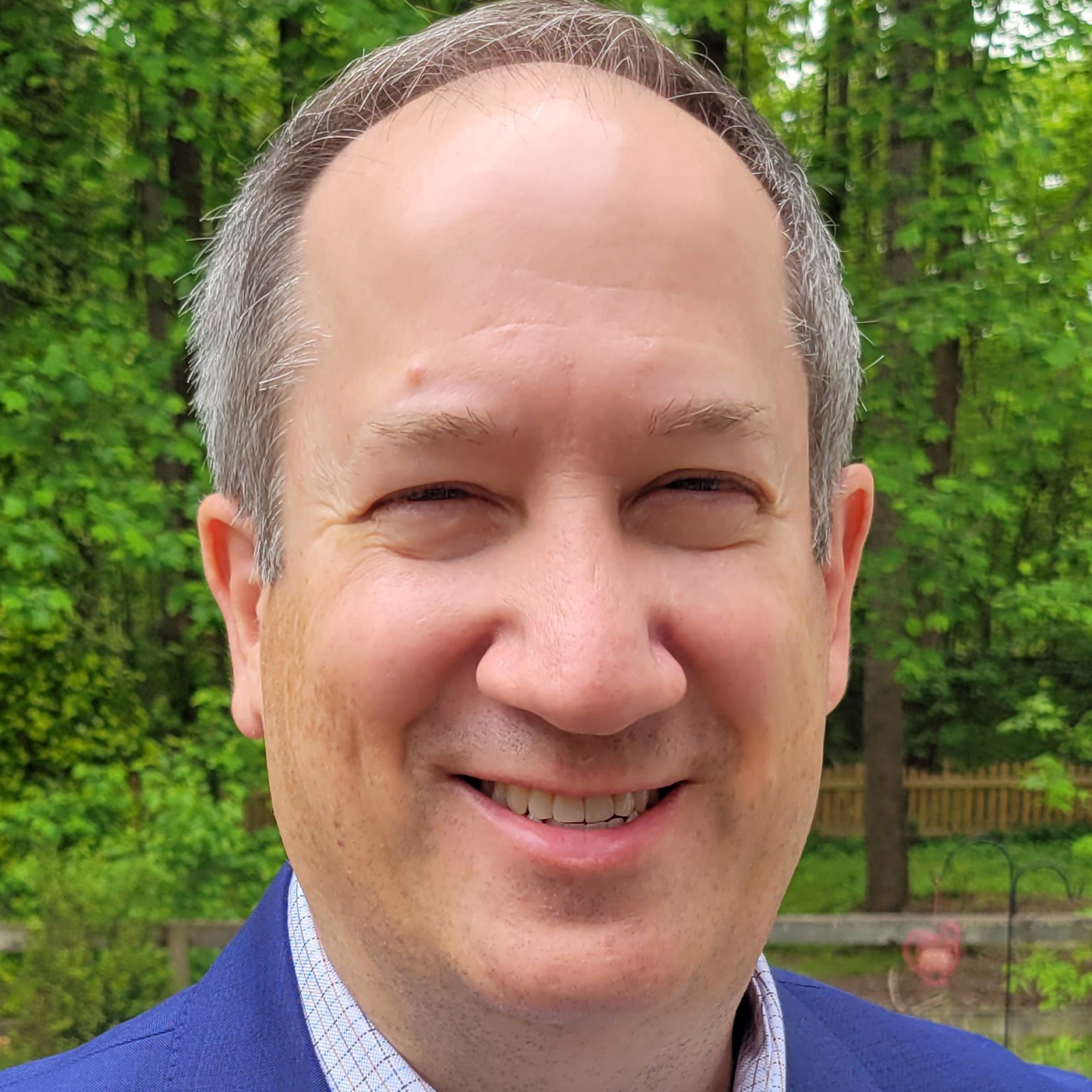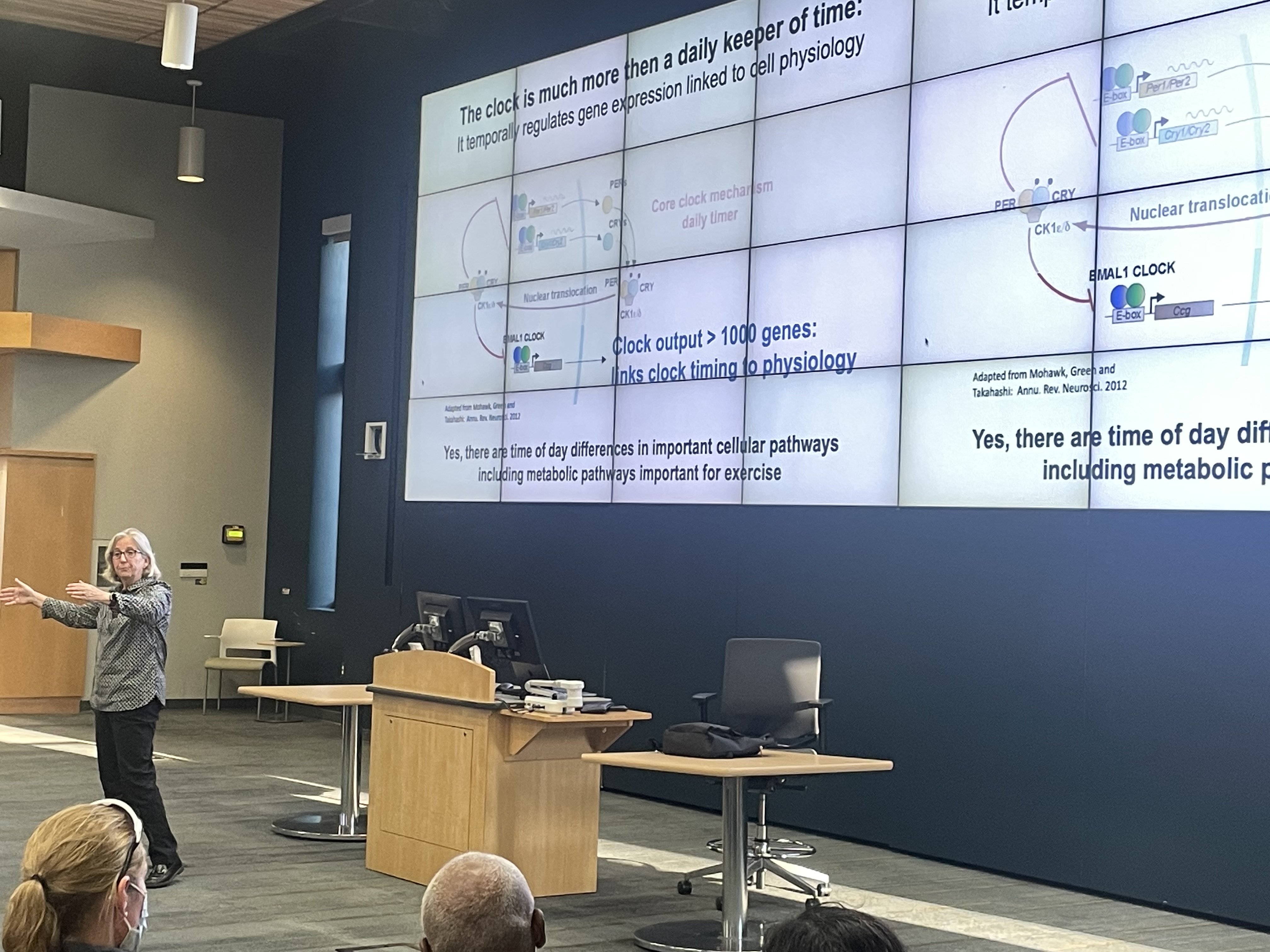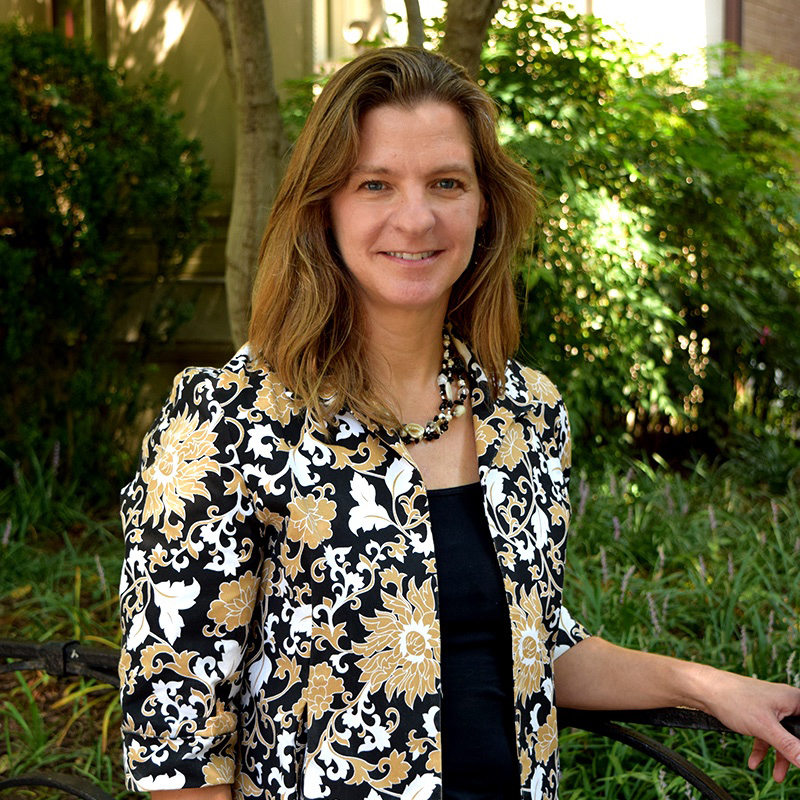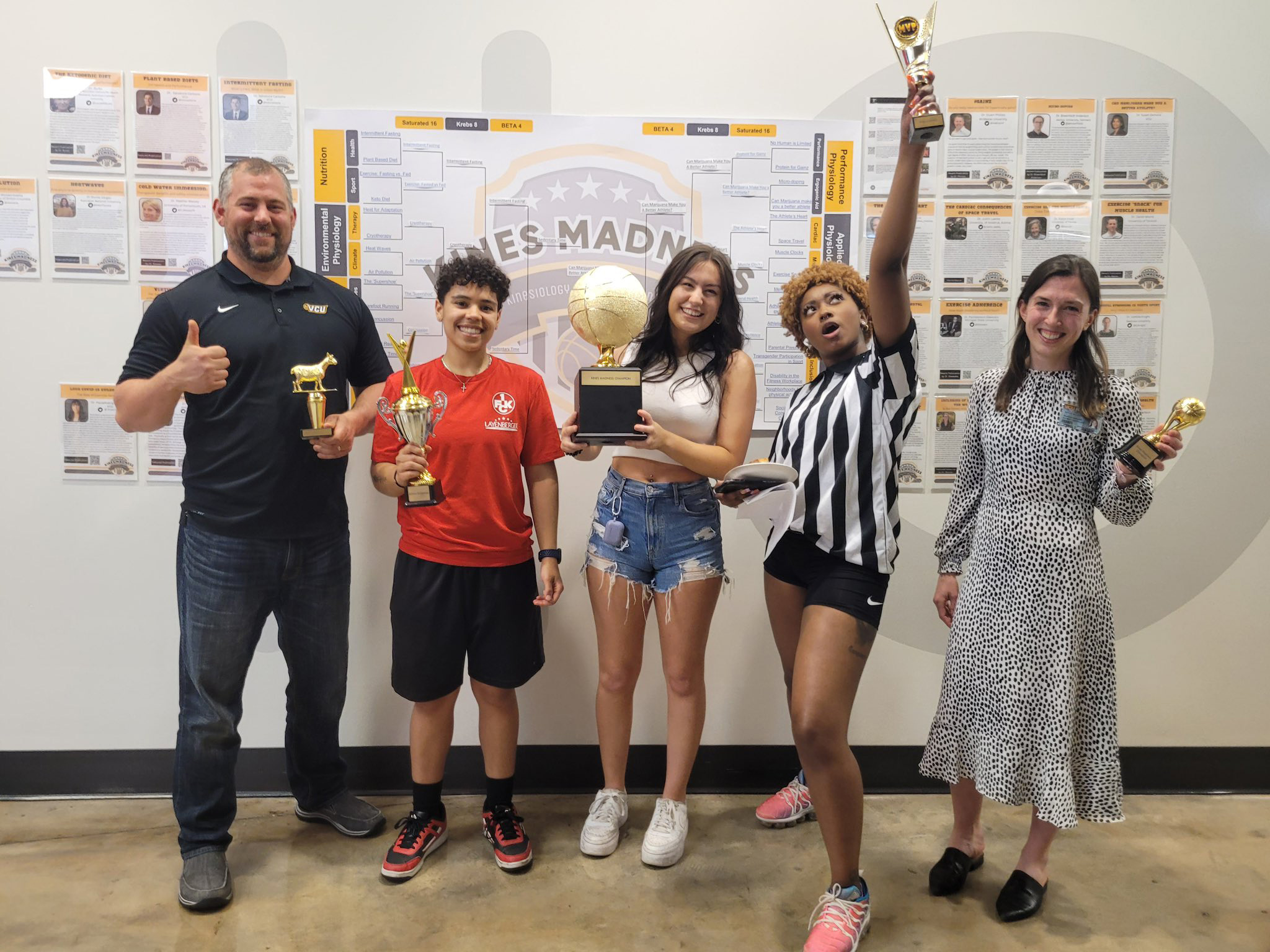In the 2022-23 academic year, the College of Humanities and Sciences supported 19 different re-engagement projects, whose aim was to create and implement innovative and sustainable practices in the classroom that led to increased student retention, heightened engagement and improved teaching and learning. We checked in with five instructors with widely different projects to find out what made the difference with their students.
Breaking down barriers to upper-level math
When Nick Wong, Ph.D., joined VCU in 2022, he knew he wanted to change the way introductory mathematics had been taught on campus. In particular, he noticed that MATH 200 Calculus with Analytic Geometry I, was a major stumbling block for students. Students would often drop out of STEM majors after struggling in the course. "I wanted to apply for the re-engagement grant to look for ways to engage students and get them through MATH 200," said Wong. "It shouldn’t be a barrier for them wanting to pursue a career in STEM."
To help students, Wong used the grant to create videos and partially flip the classroom. In the flipped classroom, students watched short videos by Wong introducing concepts and vocabulary at home, while they engaged in learning activities in the classroom. "The intent of these activities are to get students to be more engaged in their learning, develop the ability to connect math concepts and skills together rather than place each concept or skill in its own bucket, and for me to catch misconceptions and address them in small groups before working through examples with students," he explained.
.jpg)
Wong also held conferences throughout the semester where he was able to collect data from students in real time and change his teaching strategies to meet their needs. For example, he learned that students needed additional help with prerequisite skills in the active learning activities rather than the current concept or skill being developed in the active learning. Therefore, he began integrating the needed prerequisite skills into the activities.
The changes paid off. At the end of the semester, Wong’s DFW rate decreased from the previous semester. And, the student ratings of overall course rating, overall instructor rating, and overall learning achieved on the course evaluations all increased from last semester.
Wong will continue to track these metrics in the upcoming semester. He hopes to eventually spread the program throughout the department. "My goal is to help each student individually to be more successful and to examine other strategies of teaching content for conceptual understanding while still expecting solid procedural skills," Wong said.
Readying students for college-level work with Ram Prep
While teaching Mass Communications 101 at VCU, associate professor Tim Bajkiewicz, Ph.D., noticed a trend among students fresh out of high school. He saw that students were lacking skills needed for studying, which only got worse when COVID-19 hit.
Bajkiewicz said when meeting students or emailing them, he would ask how they are getting ready for quizzes and tests. The answers he received were not great, with some students saying they had not been studying or only putting in an hour or less time into studying.

"The grant gave me the opportunity to act on something that I'd been worried about for a while," said Bajkiewicz.
Bajkiewicz used the re-engagement grant to develop Ram Prep, a basic skills program that covered such topics as self-directed learning, time management, studying, research and communication. Each module consisted of videos, short articles and class discussions. Students worked through the modules throughout the semester. "I think the five topics resonated with them. Several said they'd never heard a professor talk about student success skills in class, and many said they wish we did more often," Bajkiewicz said.
Freshman Kyler Sircar found the program constructive. "I developed a rudimentary method for reading texts in grade school, but I had never defined it in such clear terms, and doing so through the Ram Prep modules definitely improved my study skills. Ram Prep helped me gain confidence as a student by taking skills I already had and building them into a much stronger learning framework."
Sircar wasn’t alone. According to student feedback, 88% of the students learned useful techniques and perspectives to be a more effective college student.
Bajkiewicz plans to continue using the Ram Prep modules in the next academic year.
Engaging the competitive spirit with KINES-Madness
Matthew Scott and Danielle Kirkman, Ph.D., assistant professors in the Department of Kinesiology and Health Sciences, let their competitive spirits guide them when thinking of ways to reconnect with students. Together they created a program where students and faculty could compete for prizes and glory in the spirit of the N.C.A.A. March Madness tournament.

Called KINES-Madness, Scott and Kirkman pitted hot topics in the field against each other, like marijuana use in athletics, transgender participation in sport, safety of exercising in air polluted environments and heat waves, and exercise as a therapy for mental health. Faculty and students then voted on the topic they thought would make the biggest impact on practice and scholarship in 2023. Alongside the competition, the department hosted a variety of events, including speakers who addressed the hot topics and professional development workshops.
The main objective of the program was the re-engagement of students, Scott said. "Our goal was to get that investment and that excitement that people get about a competition. We wanted to remind students why they chose to study sport and exercise science."
Students were enthusiastic about KINES-Madness. More than 100 people showed up to the launch party and close to 500 signed up for the program on Canvas. Now plans are underway to make KINES-Madness an annual event.
As one student wrote in their feedback survey, "I really enjoyed this! It might just be where I am in my major, but this gave me motivation and possible career ideas. I also enjoyed seeing professors outside of class and networking with everyone."
Replicating the research for an authentic experience
In order to be accepted into graduate school, psychology students need to have research experience, but the popularity of the major can make it hard to gain the experience needed. Ellen Carpenter, Ph.D., an assistant professor in the Department of Psychology, set out to remedy this problem.
"Students can work in some of our research faculty's labs, but that's maybe less than 100 students a year," said Carpenter. "I felt strongly that it was an access issue that many of our students were not getting an authentic research experience."

Authentic research, as defined by Carpenter, is research conducted by the students where they gather their data and then analyze it. To conduct research like this at an undergraduate level, she decided to turn to the Collaborative Replications and Education Project or CREP.
"It's replication because students are conducting a study that has already been done by researchers who have been researching for a while," said Carpenter. "Replication is an integral part of the scientific process."
Carpenter introduced this program in a section of her PSYC 410 Principles of Learning and Cognition. The class separated into two groups – one that participated in CREP and another that didn't. The CREP group collected and analyzed their own data, and then submitted it to the CREP website, which is part of the Open Science Framework. In this manner they contributed to a future meta-analysis with other investigators replicating the same study. It was this collection of data from surveys that they created that is not common in the classroom. "In other courses they may be given a secondary data set and told to make a hypothesis and analyze the data" said Carpenter.
At the end of the course, Carpenter compared feedback responses from students that participated in CREP and those who did not. Overall, CREP participants responded that they felt more like a scientist and that they belonged in science vs. those who didn't participate. Most importantly, CREP participants showed a significant increase of interest in applying for doctoral psychology programs once they had completed the program. "This is an amazing outcome, that after one semester of experiencing research embedded within the classroom, more students started to think about applying to doctoral programs in psychology," said Carpenter. "This is key for students coming from historically underrepresented groups in the sciences."
—
Learn more about the re-engagement grant program and view the full list of re-engagement grant recipients here.
